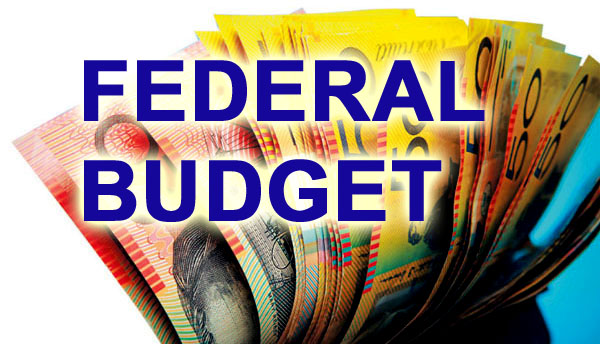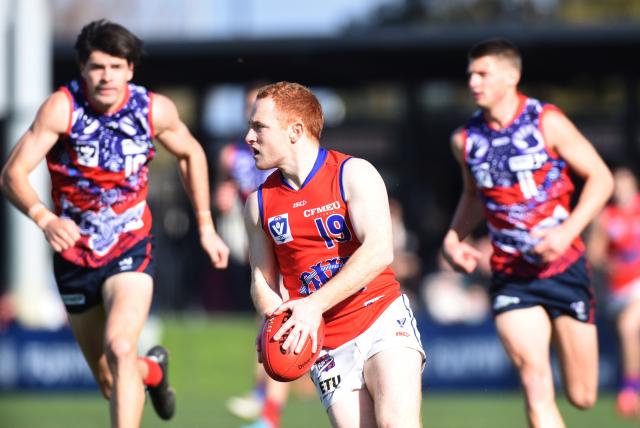An unprecedented $80 billion cut to health and education spending over the next decade leads a list of tough savings measures affecting age pensioners, seniors concession card holders, family payments and people on the disability support pension in the Abbott government’s first budget.
In a document that lives up to its dire pre-publicity, there were few surprises and little good news other than a new $20 billion medical research fund – to come from a $5 contribution by patients when visiting the doctor. Each visit will cost $7, with the other $2 going to the doctor.
The research fund is expected to reach its $20 billion target within six years and will be the largest such fund in the world.
Treasurer Joe Hockey described it as “the budget that gets on with the job”. The harsh formula reveals the government has opted to prioritise its economic management credentials above delivering on its election promise of no new or increased taxes, and no cuts to health and education. In doing so it has made a calculated gamble that Australians will eventually reward it for fixing the balance sheet.
To that end, the savings task has been deliberately constructed to delay much of the pain for later years, when growth is likely to be stronger, and to spread the burden across the board. High income earners are hit with a 2 per cent ”temporary budget repair levy”, as previously reported. That will contribute $3.1 billion in revenue and will run for three years from July 1.
But the real pain in the fiscal repair is to be felt by those with the least to give, and their contribution will be more permanent. This includes age pensioners and those on disability support pensions (DSP), whose meagre incomes will now be indexed at a lower rate – that is, according to the consumer price index, rather than the higher rate of wage inflation.
A raft of government payments will also have their eligibility criteria tightened and many will have scheduled indexation of income thresholds paused for either two or three years.
Mr Hockey denied the move to put pensions on a lower indexation represented a cut, arguing instead that it simply slowed the rate of growth while maintaining the pension’s purchasing power.
Branding the drastic reductions in expenditure as necessary to fix a budget that would otherwise become crippled with $667 billion in debt in a decade, Mr Hockey defended the blueprint as a ”time for all of us to contribute and to build”.
He said Australians were a generous people and had always been prepared to “pay it forward”.
The budget sets a timeline for reducing the deficit from its present level of $49.9 billion to $17.1billion next financial year, falling to just under $3 billion in the final year of the four-year budget cycle. That assumes some income tax cuts in that period to address bracket creep.
It represents a faster path to surplus than previously signalled and raises the possibility of reaching the psychologically – and politically – important balanced budget even earlier than 2018-19.
”The age of entitlement is over,” Mr Hockey said, adding, ”it has to be replaced, not with an age of austerity, but with an age of opportunity.”
That message did not lead to the government scrapping Mr Abbott’s signature paid parental leave scheme which, while scaled back to a maximum half-year salary replacement on $100,000, stands out against a budget heavy on cuts and sacrifice especially among the poor.
However, in a surprise move, the controversial scheme has not been given a budget line of its own, appearing instead in the contingency reserve fund, fuelling suspicions it may still be altered or dropped.
Among the many losers are the public broadcasters, the ABC and SBS. Despite an express promise that they would face no cuts, they will lose $43 million over four years as a ”down payment” on an efficiency study already under way.
Australia’s ”soft diplomacy” effort in the region via the Australia Network operated by the ABC will be closed from July 1 for a four-year saving of $198 million.
Overseas development aid will also be slashed, netting the budget a saving of $601 million next year, climbing to more than $3.5 billion in 2017-18 – the largest single saving year-on-year in the document.
Yet that saving is dwarfed by the longer-term savings to be booked from winding in commonwealth payments to the states for the big ticket services they deliver in health and eduction – in direct breach of a repeated commitment by the then opposition leader Tony Abbott who promised voters no cuts to health and not cuts to education.
MAIN POINTS
HEALTH
$7 co-payment for visits to the GP and some screening services; pharmaceutical prices increased.
PENSIONS
Pension age lifted to 70 by 2035, pensions – aged and disability support – to be indexed to inflation, rather than wages, from September 2017.
UNEMPLOYED
”Earn or learn” policy: unemployed younger than 30 years old will need to wait six months before receiving allowances.
HIGHER EDUCATION
Funding for courses to be deregulated to include diplomas; universities free to charge for degrees as they please; HECS interest rate lifted.
INFRASTRUCTURE
$11.6 billion package, with funds for Western Sydney and Melbourne’s East West link.
TAX LEVY
Taxpayers on a taxable income more than $180,000 will pay extra tax until June 2017; will raise $3.1 billion.
FAMILY TAX BENEFIT
Part B limited to families with a combined income under $100,000 (down from $150,000), and only until their youngest child turns six.
MEDICAL RESEARCH
Establish Medical Research Future Fund, planned to reach $20 billion by 2020.
THE BIG PICTURE
Surpluses projected to build to well over one per cent of GDP by 2024-25.







